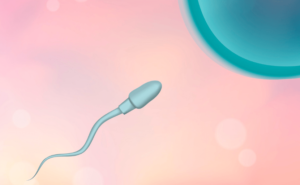Summary of this article
Since caffeine has a diuretic effect, pregnant women who need a lot of fluids should hydrate with non-caffeinated tea or soft drinks. Caffeine is suggested to potentially inhibit fetal growth, leading to low birth weight. While the possibility of miscarriage or premature birth from moderate caffeine intake is considered low, it is important to be cautious during pregnancy as caffeine stays in the body for a longer period.
Introduction
The baby in the womb receives oxygen and nutrients through the mother’s umbilical cord. After birth, the baby receives nutrients through breastfeeding, so it is important for the mother to be cautious about what she eats and drinks. Substances like caffeine and alcohol, which may have been consumed regularly before, can be harmful to the baby and pose health risks.
Caution with Caffeine During Pregnancy
Caffeine is often found not only in coffee and tea but also in so-called health teas. Additionally, it’s important to be cautious about foods such as chocolate, which can also contain caffeine.
Why is caffeine bad for pregnant women?
Caffeine has a stimulating effect that excites the nerves. Excessive intake of caffeine can stimulate the central and peripheral nervous systems, leading to insomnia, palpitations, and increased blood pressure. In addition to affecting the nervous system, caffeine can also irritate the digestive organs, causing nausea, vomiting, and diarrhea.
Additionally, caffeine hinders the absorption of water in the body and has a diuretic effect. Pregnant women, who require a lot of fluids, should hydrate with non-caffeinated tea or soft drinks.
Caffeine is suggested to potentially inhibit fetal growth, leading to low birth weight. Therefore, excessive caffeine intake during pregnancy should be avoided.
Caffeine Intake and Metabolism
For healthy adults, caffeine from coffee, tea, or green tea is quickly absorbed into the body. After absorption, caffeine passes through the blood-brain barrier, placenta, and mammary glands with the bloodstream. Although there are individual differences, the time to reach the highest blood concentration is about 30 to 120 minutes, and then it is said to be metabolized and excreted over approximately 2 to 8 hours.
During pregnancy, it is necessary to be cautious because research reports indicate that the time caffeine remains in the body can extend to about 6 to 16 hours.
Even if you consumed caffeine beverages like coffee or tea excessively before pregnancy, there is no need to worry. Caffeine does not accumulate in the body and is excreted, so it should not be a concern.
From when to when should you refrain?
Caffeinated beverages such as coffee and tea, along with tobacco and alcohol, are considered the world’s three major stimulants. Therefore, many pregnant women ask, “From when to when should I refrain from caffeine?”
According to the WHO (World Health Organization), pregnant women can consume up to 3-4 cups of coffee per day. However, caffeine intake during pregnancy may inhibit fetal growth, leading to low birth weight. Therefore, it is recommended to refrain from caffeine “from the time you realize you are pregnant until you finish breastfeeding.”
Early Pregnancy
Caffeine should be avoided from the time you realize you are pregnant. Since caffeine acts on the central nervous system, it can cause insomnia and high blood pressure. Additionally, it is said to stimulate the digestive organs, which can often worsen morning sickness.
Mid Pregnancy
The second trimester is often referred to as the stable period when morning sickness subsides. Many pregnant women, feeling well, may inadvertently consume coffee, tea, or green tea, so caution is necessary. While a small amount of caffeine is not considered to have a significant impact on the fetus, it is advisable to have non-caffeinated beverages available during pregnancy.
Late Pregnancy
In the late stages of pregnancy, as the fetus grows, the uterus enlarges and presses on the bladder. As a result, many pregnant women suffer from frequent urination. According to the WHO (World Health Organization), consuming up to 3-4 cups of coffee per day during pregnancy does not affect the fetus. However, since caffeine has a diuretic effect, it can worsen frequent urination. Therefore, it is advisable to avoid consuming caffeinated beverages such as coffee, tea, and green tea.

Caffeine During Conception
Women who wish to have a baby often focus on their diet and health management to increase their chances of getting pregnant, which is commonly referred to as “pregnancy activities.”
There is no need to specifically restrict caffeine intake during pregnancy activities. However, excessive caffeine intake can affect the central nervous system, causing anxiety and insomnia. To avoid unnecessary irritability, anxiety, and impatience during this period, it is important to be cautious about excessive consumption of coffee, tea, and green tea.
Furthermore, even in the case of in vitro fertilization, moderate caffeine intake is considered to have little impact on pregnancy (implantation rate) and childbirth.
Caffeine During Breastfeeding
During breastfeeding, as during pregnancy, consuming up to 3-4 cups of coffee per day is considered to have no impact on the baby. However, it is important to be cautious because breast milk is made from blood.
When caffeine is consumed, it is quickly absorbed into the body and passes through the mammary glands with the bloodstream. Therefore, when the mother consumes caffeine, it transitions into the breast milk, resulting in the baby also ingesting a small amount of caffeine.
Newborns have very little ability to metabolize substances. Consequently, caffeine present in breast milk can remain in the baby’s body for about 50-100 hours. The stimulating effect of caffeine can cause the baby to have trouble sleeping. Therefore, it is important to stay within the limits or avoid caffeine intake while breastfeeding.
How much caffeine is safe to consume?
According to the WHO (World Health Organization), the daily caffeine intake for pregnant and breastfeeding women is approximately 3-4 cups of coffee. However, this is a general guideline, and if there are any issues with the liver or kidneys, which are involved in the metabolism and excretion of caffeine, caffeine can remain in the body for a longer period. Additionally, the effects such as insomnia can be more pronounced, so caution is necessary.

Effects of Caffeine on Pregnant Women and Fetuses
Excessive caffeine intake is said to pose various risks to both the mother and the fetus. While the possibility of miscarriage or premature birth due to moderate caffeine intake is considered low, it is important to be cautious during pregnancy as caffeine stays in the body for a long time. To avoid exceeding the daily caffeine intake limit, it is recommended to hydrate with water or non-caffeinated beverages during pregnancy.
Risks to the Mother from Excessive Caffeine Intake
- Insomnia
- Diuretic effect
- Anxiety and irritability
- High blood pressure, headaches, or palpitations due to vasoconstriction
- Stomach pain, nausea, or vomiting
- Diarrhea
Risks to the Fetus and Newborn from Excessive Caffeine Intake
- Hypoxia
- Low birth weight
- Insomnia caused by caffeine in breast milk
Beverages and Foods Containing Caffeine
There are many beverages and foods that contain caffeine. Besides coffee and tea, chocolate also contains caffeine, so it is important to be cautious.
Cocoa mass, the raw material of chocolate, contains caffeine. Especially high-cacao chocolate products are said to contain more caffeine than milk chocolate or cocoa.
However, white chocolate is made from cocoa butter, which is extracted from cocoa mass. Therefore, it is said to contain less caffeine compared to regular chocolate.
Beverages and Foods to Avoid During Pregnancy and Breastfeeding
- Coffee, tea, green tea, etc.
- Cola
- Energy drinks
- Cocoa
- Chocolate
Beverages Safe to Drink During Pregnancy
During pregnancy, vomiting due to morning sickness can increase the need for hydration. To avoid stimulating the delicate body of a pregnant woman, it is important to frequently consume non-caffeinated tea and soft drinks to prevent dehydration.
Green juice containing kale is recommended during pregnancy because it is rich in folic acid and vitamins. However, some types of herbal tea are contraindicated for pregnant women, so caution is necessary.
What to Do if You Consume Caffeine During Pregnancy
The most concerning issue for pregnant women is likely the health of their unborn baby. Many worry, “I drank a lot of caffeinated beverages before pregnancy; could this cause congenital disabilities in my baby?” or “I accidentally ate chocolate during pregnancy.”
Caffeine consumed before pregnancy is metabolized and excreted, so it is not a problem. Also, small amounts of caffeine during pregnancy or breastfeeding should not be a cause for concern.
If you are particularly worried about the caffeine you have consumed, it is important to drink water to help promote its excretion from the body.
Health Risks to the Fetus Beyond Caffeine
There are many substances, such as caffeine and alcohol, that are considered harmful to fetal health. Pregnant women can avoid these by being careful themselves. However, miscarriages and congenital diseases in fetuses can often occur regardless of diet or living environment. Especially in pregnancies over the age of 35, miscarriages and the occurrence of Down syndrome (trisomy 21) are attributed to chromosomal abnormalities.
The Hiro Clinic NIPT‘s NIPT (Non-Invasive Prenatal Testing) can test for the risk of congenital diseases caused by chromosomal abnormalities in the baby using only the mother’s blood, as long as the pregnancy has been confirmed by an ultrasound examination. There is no direct invasion (damage) to the fetus, and for Down syndrome (trisomy 21), it can be said to be a highly accurate prenatal test with both sensitivity and specificity at 99.9%.
Diagnosing fetal health risks early in pregnancy through NIPT (Non-Invasive Prenatal Testing) can provide for a healthy pregnancy and preparation for after birth. If you have any concerns or questions about chromosomal abnormalities or congenital diseases in your baby, please consult with Hiro Clinic NIPT.
【Reference】
- Ministry of Agriculture, Forestry and Fisheries – About Excessive Caffeine Intake
- National Cancer Center – Relationship Between Coffee Consumption and Total Mortality/Major Cause-Specific Mortality
Article Editorial Supervisor

Dr Hiroshi Oka
NIPT specialist clinic, MD
Graduated from Keio University, School of Medicine
 中文
中文






















